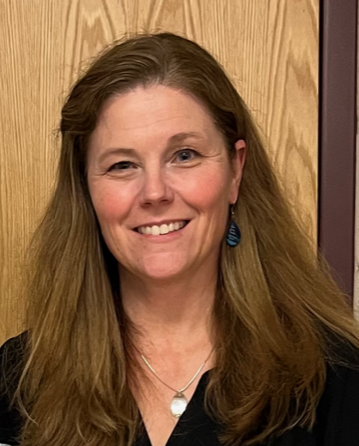A snapshot of New Hampshire’s economic climate
Mike Skelton, President and CEO of the Business & Industry Association of New Hampshire, analyzes the state’s economic climate for 2023. His comprehensive overview covers key topics such as inflation, housing and job market trends, highlighting the challenges and opportunities that have shaped New Hampshire’s business landscape. Skelton reflects on the year’s economic trajectory and provides projections for 2024, offering insights into the state’s economic health and future prospects.
How would you characterize the economic climate in New Hampshire for the year 2023?
I would say the economic climate in New Hampshire for 2023 was or is strong with some reservations and risk factors that inhibited the ability for some businesses to grow in the manner that they would like to or to make investments with full confidence. Those risk factors primarily were rising interest rates, inflation, consumer confidence and sentiment, as well as an overarching sense of potential risk with world events and whether predictions about some sort of recessionary environment were coming to fruition. The general conditions lasted through the bulk of 2023. However, as the year wore on, folks began to warm up to the fact that while those risk factors are present, economic conditions on the ground are reasonably strong. Unemployment remains low, job growth remains steady and demand remains high in most, if not all, sectors. Inflation was easing slowly, and the hopes of avoiding a recession and heading to the “soft landing,” which was the Federal Reserve Bank’s target with its rate adjustment strategy over the last year, became more and more plausible as a potential path forward.
What have been the key drivers of inflation in New Hampshire this past year, and how have they impacted local businesses?
The key drivers of inflation in New Hampshire are similar to those in any other place around the country. Depending on your perspective as a consumer or a business, you have too many dollars and too much demand chasing too few products or too little supply. As supply has increased — considering there were supply chain issues in the last few years, whether it was in vehicles or various consumer products, and those have moderated or corrected — inflation has followed that in terms of decreasing. And with the Fed’s adjustments to interest rates, that obviously has an effect on dampening demand. So the impact on businesses is potentially seen in lessening demand. However, the surprise for many folks was that demand has remained relatively high, whether you’re in the services business or in the products business. Demand has remained pretty steady. It may be starting to slow a little bit now from the earlier breakneck pace, but it’s still quite strong, and that’s evident in what you see in economic indicators, job numbers and GDP. Where the biggest impact was felt was really in interest rates and how that impacts businesses’ ability to borrow money and finance expansions or operations, or activities they’re looking to invest in for future growth. This is probably most felt in the construction industry and the housing sector. But we’re seeing some shifts now with the Fed signaling that they are done raising rates and that rate cuts are expected at some point in 2024. We’ve already started to see interest rates begin to decline, and that starts to build some momentum for 2024, in terms of businesses looking at better conditions for financing operations and financing expansions in the manner they would like to.
How did New Hampshire’s housing market evolve over 2023?
The housing market continues to be extremely challenging, and it’s something that is inhibiting our growth as an economy. We have workers and citizens who would like more housing options, who would like more affordable housing options, and we simply don’t have enough supply. That’s really the story of New Hampshire’s housing market. It’s similar to many other states around us and locations across the country: We have too much demand chasing too little supply, and we’re not building enough new units to satisfy that increasing demand. That, of course, has pushed average prices higher over the past several years, making it more difficult for new homeowners to enter the market, for homeowners who wish to upgrade or move into a larger housing unit to find that, and it makes it more difficult for older homeowners who look to downsize. We’re seeing those stressors across the housing market, and, of course, that also translates to our rental market, where rental vacancy rates continue to be below 1 percent, well far off of what we would like to see as a balanced housing market. So this continues to be a challenge. There’s a flip side of the issue where it is positive that people want to move here and want to live here. New Hampshire has a lot of desirable qualities, both in terms of job availability and quality of life, that attract people. That contributes to the demand in our housing market. But we can’t sustain having this level of demand without it coming at the cost of holding back economic growth. If we’re going to continue to grow as an economy — and for companies that wish to hire to find a qualified workforce — we need to create more housing opportunities here in 2024 and for the foreseeable future.
What changes have you observed in the New Hampshire job market? Are there any sectors that have shown significant growth or decline?
Overall, the job market is robust. New Hampshire continues to have one of the lowest unemployment rates in the country, and I don’t necessarily see that changing dramatically in 2024. We’re going to continue to have an overall shortage of available workers compared to available jobs, and that underscores the need to create pathways for workers to move here, to work here, to open themselves up to opportunities here in New Hampshire. That cuts across multiple sectors, whether you’re looking at workers in the retail sector or manufacturing sector, or the need for more workers in high tech or engineering, or more positions that require advanced degrees or training. It’s really across the board, and I would expect New Hampshire to continue to be in fierce competition with surrounding states and other parts of the country, given the advent of remote work, to attract and retain workers here.
What were the major challenges and opportunities faced by New Hampshire businesses in 2023?
In this type of economy, where there [are] some overarching risk factors relating to changes in the interest rate environment, world events impacting the economy and consumer confidence, a challenge for businesses was navigating that uncertainty while continuing to invest in the future, without having necessarily a clearer picture of what the future might bring. Would there be a recession? Or would we navigate through that? Earlier this year at one point, national economists were forecasting, in some cases with 100 percent certainty, that there would be a recession in 2023. So, for many businesses, the challenge was bracing for a downturn in the economy that ultimately has not come, and we hope does not come, but through that, continuing to look toward the future and how they can grow. In terms of opportunities, this is a time where, for companies, depending on what their industry sector is, coming out of a challenging few years with the pandemic, with high pent-up demand across multiple sectors of the economy, this is an opportunity to grow and to discover new markets, new customers and new strategies for how to reach those customers. This was a year where if you were able to navigate the uncertainty, there were probably some pretty interesting and exciting business opportunities to discover that could position you for growth well into the future.
What potential impacts do you anticipate the upcoming elections having on New Hampshire’s business environment and economic policies?
At this point, because we’re in the primary season right now, it’s a little early to say what type of impact it might have. Generally speaking, I think the business community looks to the political realm, first and foremost, for stability. And if an election cycle is particularly highly partisan and not necessarily focused on important policy issues, that can serve as a distraction from some of the important business issues that business leaders and those interested in the future of the economy would like to discuss. So, hopefully, the election cycle will allow for and have a platform where voters will be able to dig into what are the business policies and plans of each candidate, whether it’s at the presidential level or congressional level, down to state officeholders, because those issues really matter and will have a material impact on the businesses in which they work as well as their individual quality of lives. … As is the case with most elections, economic issues, in the end, tend to bubble up to the top, and how voters perceive the health of the economy and the direction of the economy usually has a significant impact on their decision-making when they ultimately go to the polls.
Based on current trends, what are your projections or expectations for New Hampshire’s economy in 2024?
I’ll caveat this to say that I am not an economist, so this is not a traditional economic forecast, but from my perspective, as CEO of the BIA, I feel very bullish on New Hampshire’s economy heading into 2024 and believe we have significant opportunities for continued growth. … I think there is increasing optimism. There are certainly going to remain some economic challenges and risk factors, but the environment and conditions are improving or strengthening compared to where we were a year ago. … New Hampshire has a favorable business climate with a business-friendly regulatory system. We have a highly educated workforce, and we have a strong quality of life and community. We’re a state that is regularly rated as one of the best places to live and raise a family. We have all of these pillars of what makes the state a strong place to do business already here, and in relatively good condition and health. That allows us to compete really well against our neighbors here in New England, and with some other states. Where we need to continue to focus is really the cost of housing, the cost of energy, and attracting workers; those are the key challenges, and I think we are making progress on them, but it’s a question of how much progress can we make year in, year out to realize the growth potential that is here before us. In terms of 2024, if continuing in the current direction with a strong job market, a lower interest rate environment and an overall economy that’s headed toward a soft landing — avoiding a recession — I think you’re going to see a really strong year for New Hampshire economically, and businesses are going to have more confidence to move forward with hiring or expansion plans that they may have put off in 2023 that they were a little worried about. They wanted a clearer picture. … So I think that is an optimistic and also realistic view of where we could be headed. I think New Hampshire continues to be well-positioned compared to many other states in the region and also around the country.
Featured photo: Mike Skelton.






